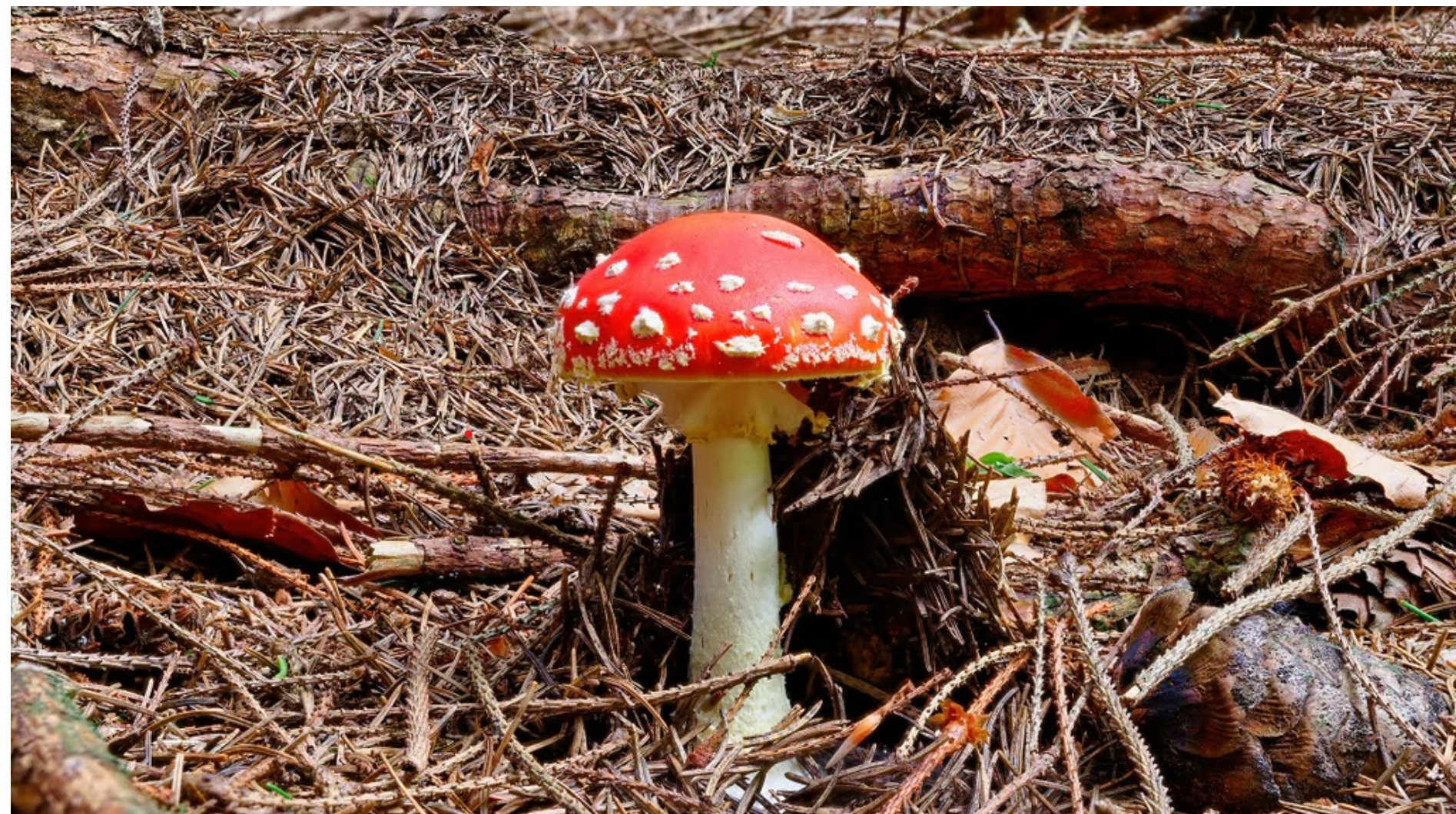Funga Taxonomic Kingdom

- 21 Oct 2024
In News:
- Chile and the United Kingdom have prepared a proposal to recognize fungi as an independent kingdom, termed "Funga", alongside flora (plants) and fauna (animals).
- This will be presented at the 16th Conference of Parties (COP16) of the UN Convention on Biological Diversity (CBD), to be held in Cali, Colombia in October 2024.
- Why Funga?
- Fungi (e.g., mushrooms, moulds, yeast, lichen) play crucial ecological roles, but have historically been overlooked in conservation strategies.
- Fungi contribute significantly to decomposition, forest regeneration, carbon sequestration, and the global nutrient cycle.
- The recognition aims to strengthen fungal conservation by integrating fungi into global legislation and policies.
- Ecological Importance of Fungi:
- Decomposition: Fungi break down organic matter, facilitating nutrient recycling in ecosystems.
- Symbiotic Relationships: Many fungi form crucial symbiotic relationships with plants (e.g., mycorrhizal associations) and animals.
- Climate Mitigation: Boreal forest fungi absorb large amounts of carbon through symbiosis with plants, playing a role in mitigating climate change.
- Pollution Remediation: Fungi can help clean polluted soils by breaking down toxins.
- Food Production: Fungi are essential for producing common foods like bread, cheese, wine, beer, and chocolate.
- Health: Fungi produce antibiotics (e.g., penicillin) and aid in mammalian digestion.
- Scientific Recognition:
- In August 2021, the International Union for Conservation of Nature (IUCN) recognized fungi as one of the three kingdoms of life, alongside plants and animals.
- The 3F initiative (Flora, Fauna, and Funga), led by Giuliana Furci, aims to promote the international recognition and protection of fungi.
- Diversity and Research Gaps:
- Only 8% of the estimated 2.2 to 3.8 million fungal species have been formally described.
- Approximately 2,000 new fungal species are discovered annually, indicating the vast underexplored diversity of fungi.
- Threats to Fungi:
- Fungi face significant threats from deforestation, climate change, pollution, overharvesting, and fungicide use.
- These threats disrupt the symbiotic relationships fungi share with plants and animals, leading to ecosystem instability.
- Nitrogen enrichment in soils and habitat loss further exacerbate these risks.
Key Facts About Fungi
- Biological Characteristics:
- Fungi are eukaryotic organisms with rigid cell walls made of chitin (distinct from the cellulose found in plant cell walls).
- They are heterotrophic, meaning they absorb nutrients from their environment through external digestion (secreting enzymes to break down organic material before absorption).
- Reproductive Strategies:
- Fungi reproduce both asexually (via spores) and sexually, ensuring their proliferation across ecosystems.
- Growth Form:
- Fungi grow primarily as mycelium, a network of hyphae (filamentous structures) that helps in nutrient absorption and environmental interaction.
- Symbiotic Relationships:
- Fungi form mycorrhizal relationships with plants, enhancing nutrient exchange, and lichen associations with algae, providing mutual benefits in extreme environments.
